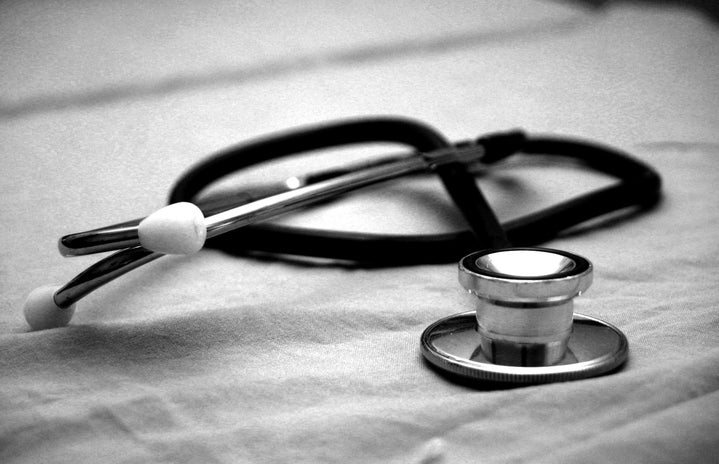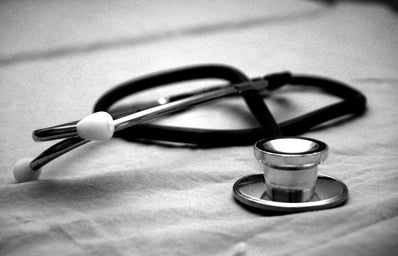In the busy life of a pre-med major, making sure that you meet all the requirements for med school can be overwhelming to think about—on top of a crazy class load, you also need extracurriculars, work experience, volunteer hours, research, patient contacts… the list goes on and on. And, thanks to COVID-19, most of the opportunities to check these off went *POOF* and disappeared because they simply weren’t safely doable. However, the good news is, you still have some options! I spent my corona-cation getting certified as an EMT-Basic, and it ended up being not only an incredible experience but a fantastic way to stay busy and motivated during the strangest months of my life. Here are my top reasons why every pre-med major should consider taking an EMT course during undergrad!
(Note: This article only pertains to the EMT certification course, as I haven’t had the chance to work as an EMT yet. Whether you end up working or just get the certification, it’s still a super valuable experience!)
1. Experience working with real patients.
Med schools LOVE for applicants to have real patient contact before medical school, and EMT is a great way to do this! Hours may vary depending on where you take the course, but I had to log 10 hours observing and assisting in the ER prior to my certification. I could take vitals, practice gathering histories, administer some medications, and listen to all different lung sounds; even just having a conversation with patients made me more confident and comfortable in my role as a healthcare provider, which will make all the difference as I move forward in my career. Plus, they usually had some really interesting stories to tell!
2. Making connections with medical professionals.
Most EMT courses are taught by experienced paramedics and other medical professionals, so forming relationships with your instructors will give you valuable insights and footholds on the medical scene. They can tell you all of their tips and tricks, as well as refer you to jobs or write letters of recommendation. During your time observing in the ER, you will also have the opportunity to talk to all kinds of people, from nurses to PA’s to surgeons, and their point of view is invaluable to anyone wishing to go into those fields.
3. Gaining tactical skills.
What frustrates me most about my college courses is that they are all so abstract and seemingly unrelated to the real work that I actually want to do. Sure, I think biology and chemistry are interesting, but you don’t learn any hard, lifesaving skills. EMT is the exact opposite; while there is still a huge amount of textbook material to cover, it is accompanied by hours and hours of hands-on, concrete skill labs (Taking vitals, giving injections, controlling c-spine, inserting airways, lifting patients, assisting with childbirth!). This scared me at first, as I’ve only really ever been good at lecture-type learning, but I ended up finding that I loved tactile learning even more! Everything we learned translated to action, and for the first time, I felt like I was learning something that could be immediately useful in the real world. Depending on what path you take in medicine, you might be working with your hands a lot (for me, on the surgical path, everything will rely on my hands!) so gaining some experience with real tools and tactics gave me some confidence in my ability to learn physical skills, and gave me a sense that I was actually doing something that could help people.
4. Establishing a good base of general medical knowledge.
Like I said earlier, a whole lot of textbook reading accompanies the cool hands-on practice. After all, in order to treat an emergency patient, you have to have a wide understanding of the many different medical emergencies you might encounter. You will learn the signs, symptoms, and emergency treatments for everything from heart attacks to hypovolemia to preeclampsia! Having a basic understanding of how the body reacts to different diseases and traumas also will make it easier to learn about more specific medical issues later on. It’s a great way to start building an arsenal of medical knowledge—plus, you gain familiarity with common medical terminology and abbreviations that you will use every day in your future career.
5. Making sure the medical field is right for you.
Pursuing a medical career is a huge commitment; it would be a terrible waste of time, energy, and money to put yourself through med school, only to find out that you faint at the sight of blood. Taking an EMT course is a relatively low-stakes way to get your feet wet and make sure that you will truly love working in medicine. Who knows, you might even find out something about yourself that you never knew—I, for one, learned that I am a trauma junkie! The bottom line is, you’ll never know until you try it, and EMT is a great place to start!
So, what are you waiting for? Go become an EMT and save some lives!



